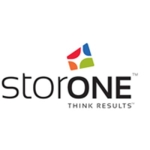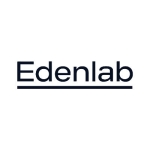What is our primary use case?
We have an SAP HANA migration project going on. We bought NetApp a couple of years back, and our first solution was to migrate the data to the HANA boxes.
In terms of mission-critical applications, the first phase of migrating the legacy systems was to migrate all the mission- and business-critical applications to the new platform. The customer has a lot of legacy applications. Most of the mission-critical applications have been moved. The only mission-critical application that is left is the website application that the customer uses. Once that is done, all of the mission-critical applications will be in NetApp.
How has it helped my organization?
The customer we have been working for has a lot of legacy products, a lot of legacy hardware and software. Their current path is towards SAP, and the back-end databases are always HANA. There has been a very big improvement in the performance.
There has also been a big improvement in the user experience. Earlier, it would take something like 14 seconds for a page to load. Now, that has improved to about six seconds or seven seconds. That's a big difference from the user's perspective. The ultimate aim, when all the legacy has been migrated to the new platform, is to have a two or three-second wait time for a page to load. We are gradually moving towards that. So overall, performance has improved a lot.
It also has helped us reduce our overall cost of storage. We migrated all our former SAN environment to NAS storage, and that has reduced the OpEx cost a lot.
What is most valuable?
The most valuable feature is the throughput. You tend to get to your data very quickly. That's why we decided, eventually, to move into NetApp, because of the speed.
Also, as a support engineer, this solution is easy to use, compared with SAN storage.
What needs improvement?
We have been talking to them about the monitoring tools and performance improvement tools which would enhance it a bit.
In a session, here at NetApp Insight 2018, I heard that OCI, which is one of the tools that is becoming more robust, will include more things that the host team can understand and make use of. So things that we're looking for are getting added.
Buyer's Guide
NetApp ONTAP
January 2026
Learn what your peers think about NetApp ONTAP. Get advice and tips from experienced pros sharing their opinions. Updated: January 2026.
881,757 professionals have used our research since 2012.
What do I think about the stability of the solution?
We had initial hiccups. Initially, we thought it was because of the way the knowledge was transitioned from the earlier support team to the new support team. We even doubted why we migrated. Later on, we learned it had to do with configuring it in the right way. Once you have everything set up properly, you should see the performance and stability that you hoped for. We are on the right track.
What do I think about the scalability of the solution?
We have not had to scale the product because the procurements are done when we migrate from one application to another. We haven't had to scale much. We will probably experience scaling in the coming days.
How are customer service and support?
NetApp technical support is really good. They help a lot with all our questions. They know that we are new customers. NetApp has always been there. You raise a ticket and they respond right away.
How was the initial setup?
We were having trouble during the initial phases of the project and NetApp was there to help us out with the data migration. The initial phases of data migration had a lot of challenges, especially because we had a lot of legacy data involved. NetApp helped us a lot in getting it done.
It was never straightforward. Even NetApp struggled a bit, because the environment was so complex, because of its legacy nature. We were migrating from a very old architecture to a newer SAP-based system.
The first year was not a great time, between a lot of email exchanges, a lot of escalations, etc. It's helping a lot that we're growing in confidence and the support team now knows our architecture behind the scenes. To an extent, the good thing about it is that the engineers have been the same most of the time. When we raise a ticket, they already know the background and how to work it out.
It's been a journey. I believe in another one or two years, it will be a stable environment. But the initial days were really complex.
What about the implementation team?
We had consultants on the job. It was very good. They helped a lot. It was like a partnership between Tata and NetApp to do the migration from the old SAN environment. Consultants were in-house, onsite, to help, and they are really helpful.
Which other solutions did I evaluate?
Especially for this customer, NetApp was the only option.
What other advice do I have?
I suggest involving NetApp in your solutioning, so that they better know what to propose and what procurements need to be done in the initial stages. Otherwise, you are looking at wasting a lot of time, the kind where you are in the middle of a project, and you realize, "Oh, this is not what I want, I want to be able to scale up more," or something like that. You have to involve them as consultants at the initial stage so that the right things are bought. Their involvement is very important in terms of the architecting, especially if you are building up a new environment.
We don't use the solution for machine-learning, AI, real-time analytics, or other kinds of ground-breaking applications for storage.
We have the lowest version. We still have to do a couple of upgrades to have the latest OCI at the ONTAP level. I would rate what we have now as a six out of ten but that is probably going to climb in the next year or so; it will probably be a better number.
Disclosure: My company has a business relationship with this vendor other than being a customer. Partner.








